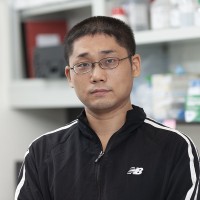Epigenetics Research Innovation Lab (ERIL)
Overview



The Epigenetics Research Innovation Lab (ERIL) has been established to contribute to the growing epigenetics research community at MSK and support efforts to define the epigenetic mechanisms that alter the state of chromatin and regulate transcription in normal and disease conditions. Aberrations in epigenetic mechanisms are now recognized as one of the hallmarks of cancer, allowing cancer cells to adapt to diverse organ ecosystems and making chromatin one of the most exciting areas of cancer research. An especially promising aspect of the field is that epigenetic changes are reversible and, importantly, responsive to drugs, which provides unprecedented opportunities for innovation in treating and curing cancer
ERIL is embedded in the Center for Epigenetics Research which combines basic scientific discovery, translational cancer research, drug development, and early-phase clinical trials, all with the goal of offering longer lives and fresh hope to people diagnosed with any form of cancer.
Iestyn Whitehouse, Director of ERIL and Chair of the Oversight Committee, is an expert in understanding how chromatin functions in the regulation of cellular processes, ERIL provides MSK researchers with state-of-the-art epigenetics research resources and services to study cancer-associated changes in chromatin accessibility, DNA methylation, and histone modifications. Under Iestyn’s leadership, Richard Koche has been appointed as the Head of ERIL and leader of the computational unit and Pierre-Jacques Hamard has been appointed as the leader of the wet lab unit.
Pierre-Jacques Hamard is an expert in epigenetic methods that include ATAC-seq protocols, an array of CUT&RUN approaches, DNA/chromatin extraction and fragmentation along with quality control check, and Whole Genome Bisulfite Sequencing (WGBS) assays and variations to study DNA methylation.
ERIL’s mission is not only to develop customized protocols but also design innovative techniques to study epigenetic alterations with the goal to fit a large variety of research needs and foster collaborative actions with the teams/researchers interested in developing new approaches to support projects related to epigenomics.
Projects
People






Members



















Open Positions
To learn more about available postdoctoral opportunities, please visit our Career Center
Get in Touch
-
Director Email